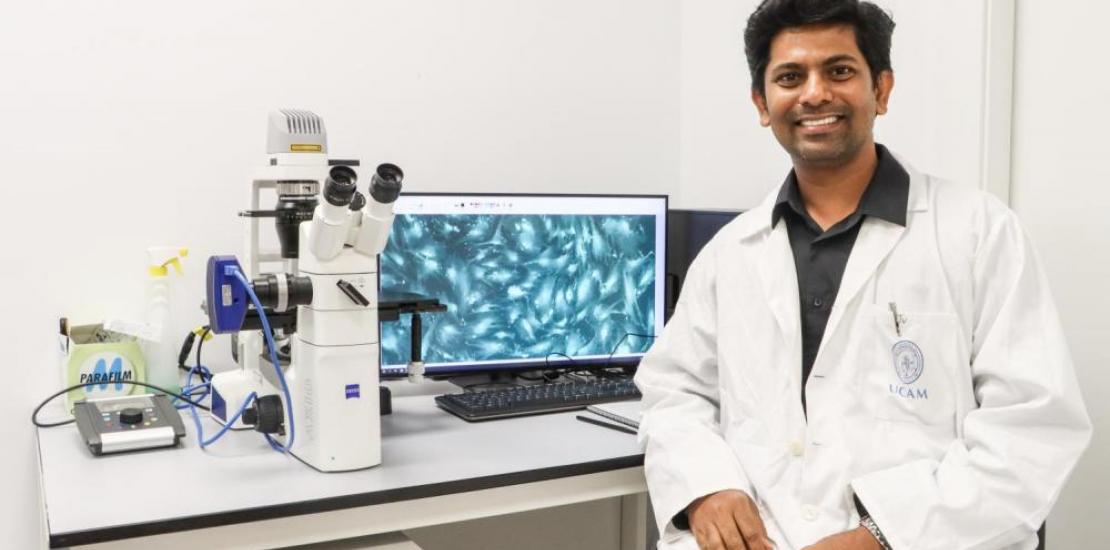UCAM researchers validate a marine compound to treat serious illnesses
Universities in China, Chile, India, Ethiopia and Spain are analysing the potential of a compound extracted from marine fungi to treat stroke, cancer, neurodegenerative diseases, thrombosis and kidney damage.
The prestigious journal Frontiers in Cellular and Infection Microbiology has published an article led by researchers from the Universidad Católica de Murcia (UCAM), in collaboration with an international team of scientists from universities in China, India, Chile and Ethiopia. The study focuses on showing the benefits and therapeutic potential of a marine fungal compound called FGFC (Fungi Fibrinolytic Compound).
FGFC is a bioactive compound extracted from marine fungi (Stachybotrys longispora and Stachybotrys microspora), which has been proven effective in preclinical studies for the treatment of serious diseases such as stroke, kidney damage and cancer. Its ability to dissolve blood clots safely, reducing the risks associated with current thrombolytic treatments, makes it a promising alternative in the medical field.
UCAM researchers, led by Dr Jeevithan Elango, have highlighted the importance of this discovery, which combines antioxidant, anti-inflammatory and anti-tumour properties. In addition, in animal models, GFCF has shown neuroprotective effects that could be crucial in reducing brain damage after a stroke.
This study also highlights the ability of FGFC to activate plasminogen, a key clot-dissolving component, with fewer side effects than conventional treatments. In oncology, FGFC has been shown to be effective in inhibiting the growth of cancer cells, including those resistant to therapy (such as Erlotinib-resistant non-small-cell lung cancer), by regulating key molecular pathways such as phosphorylation of the EGFR protein.
The UCAM Research Group in Materials and Tissue Engineering stresses the potential of marine resources as a source of new therapeutic compounds, paving the way for future research and clinical applications. As Dr Jeevithan Elango noted: ‘Secondary metabolites derived from natural marine sources, in particular marine microorganisms and fungi, have extraordinary potential in the regenerative field, as they display activity on a variety of pathologies. This secondary metabolite represents a promising alternative to conventional synthetic drugs, with the potential to reduce side effects and improve patient outcomes. The study of marine fungi in this context not only offers new directions for medical treatments, but also explores the incredible potential of natural pharmaceuticals, offering more effective and sustainable therapies. Based on these hypotheses and concepts, our current research explores the response of FGFC1 in regenerative stem cell signalling using a novel hydrogel delivery vehicle system.’




